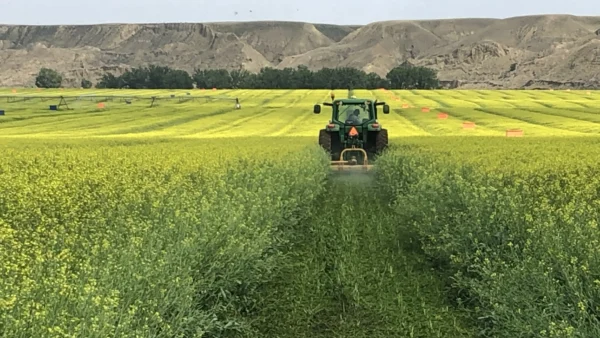The word ‘natural’ has a positive sound in consumers’ ears, especially when it refers to food. But is it? Do claims about ‘naturalness’ have any ground? The term is used haphazardly in marketing and comes up in several policy debates, currently of course in the area of New Genomic Techniques. The word ‘techniques’ already appears to indicate non-naturalness, but is it, or is it just a human construct?
All our food is natural, or none is. Apart from hunter-gatherers, who collected food from nature, all our food has gained increasing distance from such berries and roots collected from nature. Already cooking such natural products, or fermenting (sorry beer, cheese and sauerkraut lovers) challenge the purely natural nature of the product since we change them chemically with such human interventions. And few consumers, at least those in the cities, have no idea that agriculture itself (ploughing, weeding and crop protection) to keep 100,000 plants of the same species happy and healthy on a single hectare is a fight against nature rather than letting nature go its way.
And of course, in our own area: domestication of crops and animals, and subsequent breeding are all human interventions that have made our current crops unrecognizable when compared to the wild ancestors. Crossing distant relatives, mutating, rescuing embryos, transformation and genome editing are techniques that we are mastering now.
So, our crops are a long distance away from the wild ancestors, agriculture itself is unnatural, and industrial food processing transforms harvested materials, such as oat milk, cell-cultured or vegan ‘meat’, or Mars-bars, into high-tech products. So, the verdict is that none of our food is natural.
However, you could also say that ‘natural’ should also refer to products and processes where we, humans, have learnt from nature and apply such knowledge to produce food. Now we’re talking: agronomy is nothing more that transforming such knowledge of natural processes to produce crops; food processing, including fermentation (phew, beer lovers) and – lo and behold – also plant breeding is nothing more than applying what we observe in nature. Even transformation and CRISPR-Cas, both techniques based on studying bacteria, are merely the application of such knowledge. So, all our food is natural.
So, what’s the problem? The problem is that neither of these outcomes seem to satisfy us, mainly because with neither statement you can claim a particular value, something that marketeers would like to do, or that you can build a particular world view on. In order to do so, you have to create a distinction somewhere along the line from no-tech to hi-tech. Any such distinction is a human construct. Using chemically produced nitrogen to supplement soil fertility; heating milk to 72 degrees Celsius to avoid food risks; irradiating plant tissues or using CRISPR and Cas to edit DNA – which of these interferences cause unnaturalness? Where do we draw the line? Despite the greyness of such borders, people appear to have very strong ideas about where they draw the line, refuse to use some of these techniques and/or disallow others to use them.
There is a wide range of ‘food rules’ in many religions, many of which have sound food safety background, at least at the time that they were proclaimed. Less strict cultural drivers include the origin-rules of products to be ‘real’ (Cognac) or that slow food and local-for-local is healthy for body or planet. Culture may also claim that tomato is an essential part of Italian cuisine, bypassing the fact that tomato originated in central America, pretty far from Italy. And, finally there may be psychological conditions such as neophobia, or technophobia, that are the underlying argument for many who misuse the precautionary principle in the debate, that can be the basis of strong rejections of certain food. In the breeding technology debate, the border that some people want to draw is: ‘the integrity of the cell’, that IFOAM leads its followers to reject any breeding technique that operates in the cell, such as mutation breeding, transgenesis and genome editing. Then there is also the ‘end of the germline’ argument against hybrids, that the biodynamic sector likes to avoid. Such arguments are close to the ‘naturalness’ concept for consumers.
The NGT discussion is mainly about the perception of naturalness (next to concerns about power in the food chain), but I wonder how many discussants realize that. So, let’s delete the word ‘natural’ from the discussions around agriculture and food and in marketing, instead talk about what really matters: impact on environment and health and things like food security.













